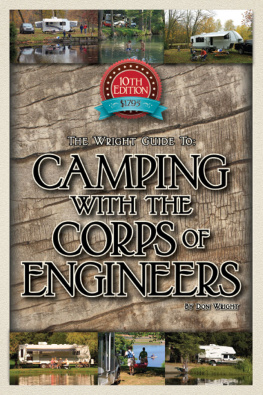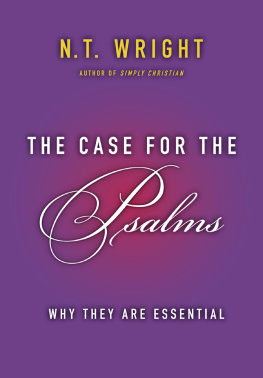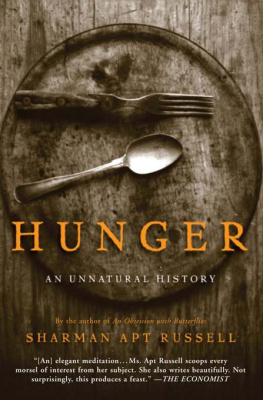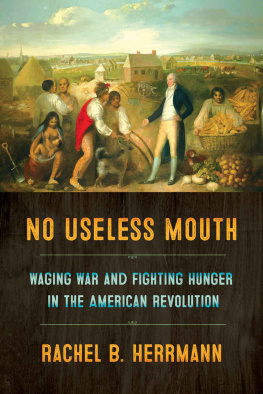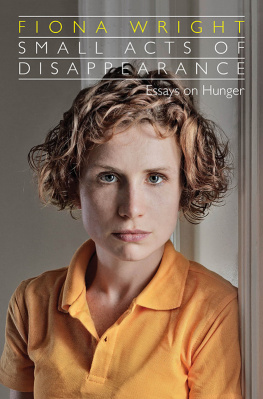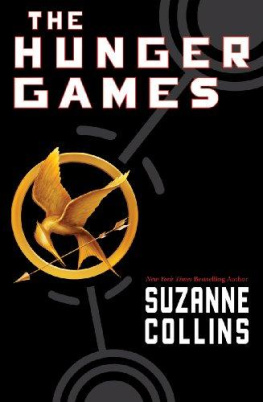Wright - American Hunger
Here you can read online Wright - American Hunger full text of the book (entire story) in english for free. Download pdf and epub, get meaning, cover and reviews about this ebook. year: 2010;1977, publisher: HarperCollins e-books, genre: Art. Description of the work, (preface) as well as reviews are available. Best literature library LitArk.com created for fans of good reading and offers a wide selection of genres:
Romance novel
Science fiction
Adventure
Detective
Science
History
Home and family
Prose
Art
Politics
Computer
Non-fiction
Religion
Business
Children
Humor
Choose a favorite category and find really read worthwhile books. Enjoy immersion in the world of imagination, feel the emotions of the characters or learn something new for yourself, make an fascinating discovery.

American Hunger: summary, description and annotation
We offer to read an annotation, description, summary or preface (depends on what the author of the book "American Hunger" wrote himself). If you haven't found the necessary information about the book — write in the comments, we will try to find it.
American Hunger — read online for free the complete book (whole text) full work
Below is the text of the book, divided by pages. System saving the place of the last page read, allows you to conveniently read the book "American Hunger" online for free, without having to search again every time where you left off. Put a bookmark, and you can go to the page where you finished reading at any time.
Font size:
Interval:
Bookmark:
WRIGHT
Hunger
Afterword by Michel Fabre

Sometimes I wonder, huh,
Wonder if other people wonder, huh,
Sometimes I wonder, huh,
Wonder if other people wonder, huh,
Just like I do, oh, my Lord, just like I do!
Negro Folk Song
M Y first glimpse of the flat black stretches of Chicago depressed and dismayed me, mocked all my fantasies. Chicago seemed an unreal city whose mythical houses were built of slabs of black coal wreathed in palls of gray smoke, houses whose foundations were sinking slowly into the dank prairie. Flashes of steam showed intermittently on the wise horizon, gleaming translucently in the winter sun. The din of the city entered my consciousness, entered to remain for years to come. The year was 1927.
What would happen to me here? Would I survive? My expectations were modest. I wanted only a job. Hunger had long been my daily companion. Diversion and recreation, with the exception of reading, were unknown. In all my lifethough surrounded by many peopleI had not had a single satisfying, sustained relationship with another human being and, not having had any, I did not miss it. I made no demands whatever upon others.
The train rolled into the depot. Aunt Maggie and I got off and walked slowly through the crowds into the station. I looked about to see if there were signs saying: F OR W HITE F OR C OLORED . I saw none. Black people and white people moved about, each seemingly intent upon his private mission. There was no racial fear. Indeed, each person acted as though no one existed but himself. It was strange to pause before a crowded newsstand and buy a newspaper without having to wait until a white man was served. And yet, because everything was so new, I began to grow tense again, although it was a different sort of tension than I had known before. I knew that this machine-city was governed by strange laws and I wondered if I would ever learn them.
As we waited for a streetcar to take us to Aunt Cleos home for temporary lodging, I looked northward at towering buildings of steel and stone. There were no curves here, no trees; only angles, lines, squares, bricks and copper wires. Occasionally the ground beneath my feet shook from some faraway pounding and I felt that this world, despite its massiveness, was somehow dangerously fragile. Streetcars screeched past over steel tracks. Cars honked their horns. Clipped speech sounded about me. As I stood in the icy wind, I wanted to talk to Aunt Maggie, to ask her questions, but her tight face made me hold my tongue. I was learning already from the frantic light in her eyes the strain that the city imposed upon its people. I was seized by doubt. Should I have come here? But going back was impossible. I had fled a known terror, and perhaps I could cope with this unknown terror that lay ahead.
The streetcar came. Aunt Maggie motioned for me to get on and pushed me toward a seat in which a white man sat looking blankly out the window. I sat down beside the man and looked straight ahead of me. After a moment I stole a glance at the white man out of the corners of my eyes; he was still staring out the window, his mind fastened upon some inward thought. I did not exist for him; I was as far from his mind as the stone buildings that swept past in the street. It would have been illegal for me to sit beside him in the part of the South that I had come from.
The car swept past soot-blackened buildings, stopping at each block, jerking again into motion. The conductor called street names in a tone that I could not understand. People got on and off the car, but they never glanced at one another. Each person seemed to regard the other as a part of the city landscape. The white man who sat beside me rose and I turned my knees aside to let him pass, and another white man sat beside me and buried his face in a newspaper. How could that possibly be? Was he conscious of my blackness?
We went to Aunt Cleos address and found that she was living in a rented room. I had imagined that she lived in an apartment and I was disappointed. I rented a room from Aunt Cleos landlady and decided to keep it until I got a job. I was baffled. Everything seemed makeshift, temporary. I caught an abiding sense of insecurity in the personalities of the people around me. I found Aunt Cleo aged beyond her years. Her husband, a product of a southern plantation, had, like my father, gone off and left her. Why had he left? My aunt could not answer. She was beaten by the life of the city, just as my mother had been beaten. Wherever my eyes turned they saw stricken, frightened black faces trying vainly to cope with a civilization that they did not understand. I felt lonely. I had fled one insecurity and had embraced another.
When I rose the next morning the temperature had dropped below zero. The house was as cold to me as the southern streets had been in winter. I dressed, doubling my clothing. I ate in a restaurant, caught a streetcar and rode south, rode until I could see no more black faces on the sidewalks. I had now crossed the boundary line of the Black Belt and had entered that territory where jobs were perhaps to be had from white folks. I walked the streets and looked into shop windows until I saw a sign in a delicatessen: P ORTER W ANTED.
I went in and a stout white woman came to me.
Vat do you vant? she asked.
The voice jarred me. Shes Jewish, I thought, remembering with shame the obscenities I used to shout at Jewish storekeepers in Arkansas.
I thought maybe you needed a porter, I said.
Meester Offman, he eesnt here yet, she said. Vill you vait?
Yes, maam.
Seet down.
No, maam. Ill wait outside.
But eets cold out zhere, she said.
Thats all right, I said.
She shrugged. I went to the sidewalk. I waited for half an hour in the bitter cold, regretting that I had not remained in the warm store, but unable to go back inside. A bald, stoutish white man went into the store and pulled off his coat. Yes, he was the boss man I went in.
Zo you vant a job? he asked.
Yes, sir, I answered, guessing at the meaning of his words.
Vhere you vork before?
In Memphis, Tennessee.
My brudder-in-law vorked in Tennessee vonce, he said.
I was hired. The work was easy, but I found to my dismay that I could not understand a third of what was said to me. My slow southern ears were baffled by their clouded, thick accents. One morning Mrs. Hoffman asked me to go to a neighboring storeit was owned by a cousin of hersand get a can of chicken la king. I had never heard the phrase before and I asked her to repeat it.
Dont you know nosing? she demanded of me.
If you would write it down for me, Id know what to get, I ventured timidly.
I cant vite! she shouted in a sudden fury. Vat kinda boy ees you?
I memorized the separate sounds that she had uttered and went to the neighboring store.
Mrs. Hoffman wants a can of Cheek Keeng Awr Lar Keeng, I said slowly, hoping that he would not think I was being offensive.
All vite, he said, after staring at me a moment.
He put a can into a paper bag and gave it to me; outside in the street I opened the bag and read the label: Chicken La King. I cursed, disgusted with myself. I knew those words. It had been her thick accent that had thrown me off. Yet I was not angry with her for speaking broken English; my English, too, was broken. But why could she not have taken more patience? Only one answer came to my mind. I was black and she did not care. Or so I thought I was persisting in reading my present environment in the light of my old one. I reasoned thus: Though English was my native tongue and America my native land, she, an alien, could operate a store and earn a living in a neighborhood where I could not even live. I reasoned further that she was aware of this and was trying to protect her position against me.
Font size:
Interval:
Bookmark:
Similar books «American Hunger»
Look at similar books to American Hunger. We have selected literature similar in name and meaning in the hope of providing readers with more options to find new, interesting, not yet read works.
Discussion, reviews of the book American Hunger and just readers' own opinions. Leave your comments, write what you think about the work, its meaning or the main characters. Specify what exactly you liked and what you didn't like, and why you think so.



